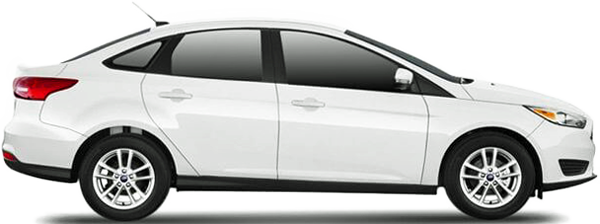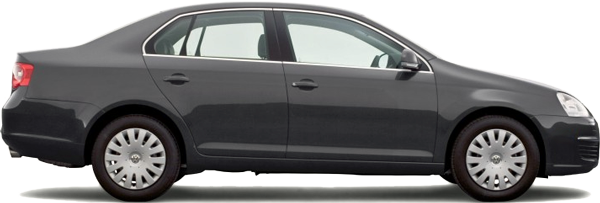Die Vergleichsanalyse :
Ford Focus Limousine 1.0 EcoBoost (12 - 14) vs. VW Jetta 2.0 FSI (05 - 08)
21.000 €

23.900 €

21.000 €
Grundpreis ⓘListenpreis für das Basismodell (Standardausstattung ohne Extras) zum Zeitpunkt der Markteinführung in Deutschland.
23.900 €
ⓘListenpreis für das Basismodell (Standardausstattung ohne Extras) zum Zeitpunkt der Markteinführung in Deutschland. Preisinfo
Abmessungen
Die Abmessungen dieser Fahrzeuge unterscheiden sich geringfügig voneinander. Der Ford Focus 1.0 EcoBoost Start/Stopp ist 2 cm kürzer, 4.2 cm breiter und 2.5 cm höher als der VW Jetta 2.0 FSI.
Ford Focus 1.0 EcoBoost Start/Stopp
VW Jetta 2.0 FSI
1484
1823
2015
1459
1781
2003
1823 mm
Breite
1781 mm
2015 mm
Breite mit Spiegeln
2003 mm
1484 mm
Höhe
1459 mm
2650
4534
2575
4554
4534 mm
Länge
4554 mm
2650 mm
Radstand
2575 mm
Gewicht
Ford Focus 1.0 EcoBoost Start/Stopp
VW Jetta 2.0 FSI
1306 kg
Leergewicht
1394 kg
1900 kg
Zulässiges
Gesamtgewicht
Gesamtgewicht
1910 kg

Gewichtsdifferenz:
88 kg
6.31 %

Allgemein
Ford Focus 1.0 EcoBoost Start/Stopp
VW Jetta 2.0 FSI
DYB
Baureihe
1K5/1KM
Limousine
Karosserie
Limousine
Super (ROZ 95)
Kraftstoff
Super (ROZ 95)

Frontantrieb
Antrieb
Frontantrieb

6-Gang-Schaltgetriebe
Getriebe
6-Gang-Schaltgetriebe
Motor
Ford Focus 1.0 EcoBoost Start/Stopp
VW Jetta 2.0 FSI
Reihendreizylinder-Benziner mit Turboaufladung
Motorbauart
Reihenvierzylinder-Benziner (Saugmotor)
Motorcode
BLR
4
Ventile
4
3
Zylinder
4
998 cm³
Hubraum
1984 cm³
125 PS
bei 6000 U/min
Leistung
150 PS
bei 6000 U/min
Ford Focus 1.0 EcoBoost Start/Stopp
125 PS
150 PS
VW Jetta 2.0 FSI
170 Nm
bei 1500 U/min
Drehmoment
200 Nm
bei 3500 U/min
Ford Focus 1.0 EcoBoost Start/Stopp
170 Nm
200 Nm
VW Jetta 2.0 FSI
Leistungsfähigkeit
Ford Focus 1.0 EcoBoost Start/Stopp
VW Jetta 2.0 FSI
195 km/h
Höchstgeschwindigkeit
211 km/h
11.4 s
Beschleunigung 0 – 100 km/h
9.2 s
100 km/h
100
km/h
km/h
158 m
0.000 s

Ford Focus 1.0 EcoBoost Start/Stopp
100 km/h
100
km/h
km/h
128 m
0.000 s

VW Jetta 2.0 FSI
▶ REPLAY
10.45 kg/PS
Leistungsgewicht
9.29 kg/PS
Ford Focus 1.0 EcoBoost Start/Stopp
10.45 kg/PS
9.29 kg/PS
VW Jetta 2.0 FSI
Verbrauch / Umwelt
Ford Focus 1.0 EcoBoost Start/Stopp
VW Jetta 2.0 FSI
Verbrauch pro 100 km
5.1 L
kombiniert
8 L
Ford Focus 1.0 EcoBoost Start/Stopp
5.1 L
8 L
VW Jetta 2.0 FSI
6.4 L
innerorts
11.1 L
4.4 L
außerorts
6.3 L
55 L
Tankgröße
55 L
1078 km
Reichweite
688 km
Ford Focus 1.0 EcoBoost Start/Stopp
1078 km
688 km
VW Jetta 2.0 FSI
Auswirkung auf die Umwelt
60 kWh
Gesamtenergieverbrauch
pro 100 km ⓘDer Gesamtenergieverbrauch pro 100 km ergibt sich aus der Energie, die ein Fahrzeug bei der Verbrennung eines Treibstoffs (bzw. bei der Verwendung von Strom) pro 100 km verbraucht (Endenergie) und der Energie, die für die Erzeugung und Bereitstellung entsprechender Menge Treibstoffs (bzw. Stroms) benötigt wird (Primärenergie). Dabei werden auch die Vorprozesse der Treibstoffherstellung, der Transport eines Treibstoffs bis zur Tankstelle (bzw. der Transport des Stroms bis zur Steckdose) und die Verluste, die dabei auftreten, berücksichtigt. Der Gesamtenergieverbrauch ermöglicht somit einen Vergleich der Energieeffizienz von Fahrzeugen mit verschiedenen Antriebssystemen.
pro 100 km ⓘDer Gesamtenergieverbrauch pro 100 km ergibt sich aus der Energie, die ein Fahrzeug bei der Verbrennung eines Treibstoffs (bzw. bei der Verwendung von Strom) pro 100 km verbraucht (Endenergie) und der Energie, die für die Erzeugung und Bereitstellung entsprechender Menge Treibstoffs (bzw. Stroms) benötigt wird (Primärenergie). Dabei werden auch die Vorprozesse der Treibstoffherstellung, der Transport eines Treibstoffs bis zur Tankstelle (bzw. der Transport des Stroms bis zur Steckdose) und die Verluste, die dabei auftreten, berücksichtigt. Der Gesamtenergieverbrauch ermöglicht somit einen Vergleich der Energieeffizienz von Fahrzeugen mit verschiedenen Antriebssystemen.
94.2 kWh
Ford Focus 1.0 EcoBoost Start/Stopp
60 kWh
94.2 kWh
VW Jetta 2.0 FSI
Euro 5
Schadstoffklasse
Euro 4
117 g/km (NEFZ)
CO2-Emissionen
191 g/km (NEFZ)
Alltagsnutzen
Ford Focus 1.0 EcoBoost Start/Stopp
VW Jetta 2.0 FSI
4
Türen
4
5
Sitzplätze
5
594 kg
Maximale Zuladung
516 kg
475 L
Kofferraumvolumen
527 L










Кeine Daten
Stauraum mit umgeklappter
Rücksitzbank
Rücksitzbank
Кeine Daten




















